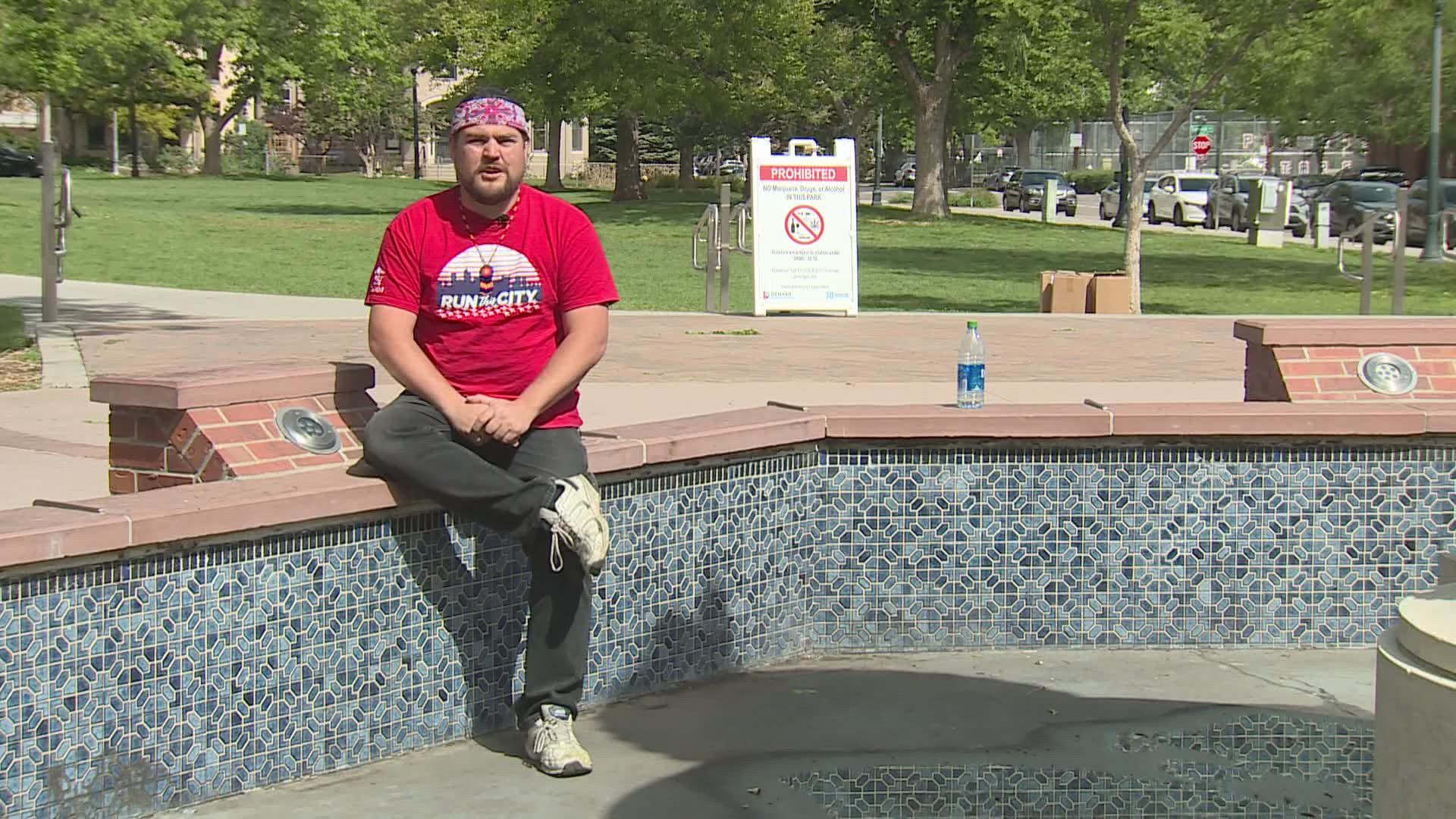DENVER — A new nonprofit is providing trash services for those living in Denver's encampments. Headwaters Protectors was created in 2020, amidst the pandemic, when it's founder Ean Thomas Tafoya saw a need.
"I’ll never forget the first day during COVID where I washed the hands of a man while he was crying and he said I haven’t washed my hands in five days," Tafoya said. "We’re in Denver, Colorado -- you should be able to wash your hands more than once in five days."
Every Sunday morning at 10:00, Tafoya and a group of volunteers meet at Benedict Fountain Park. The group then visits camps in the area and picks up the trash that gathered through the week. They then notify the city where they can pick up the pile of bags.
Headwaters Protectors also supplies a portable sink for those living in the camps to use. Bottled water is passed out as well.
(Editor’s note: This interview has been edited for context and clarity.)
Why was Headwater Protectors created?
Tafoya: Headwaters Protectors was founded in July of 2020 as a mutual aide group that eventually turned into a nonprofit. During the pandemic we saw people didn’t have access to water so we knew we needed to act.
We give compassionate trash and water service to people. That means building relationships with the people on the streets who need access to these services.
Shovels, brooms, I mean you know pick your weapon in that sense. We have a whole system here thanks to Denver Parks and Recreation they continue to partner with us on our service.
Why meet at Benedict Fountain Park?
Tafoya: We call it Benedict no-Fountain Park. There hasn’t been water running here for a long time and we think it symbolizes the lack of access to water and sanitation in our city and we’ve come here with indigenous leaders actually to do prayers hopefully to bring water back here and bring water to everyone.
Water brings people forward and then we help fulfill what they need. It’s your basic needs that you need met, right? Food, water, shelter to self-actualize and live a better life. We can be a bridge.
Why is it so important to provide this service?
Tafoya: The people who live in these encampments sometimes they feel really overwhelmed, you know? You try and get your trash in one place you don’t get service, it doesn’t get picked up, the animals get into it. I don’t think anyone really wants to live this way. The lack of sanitation is not working for anyone.
Everybody needs access. If you didn’t have trash in your house, If you didn’t have water turning on, you’d have to go somewhere. If [those experiencing homelessness] had regular trash service, if they had regular water service, it probably wouldn’t be the way that it is. So when we’ve been able to serve the same encampment when they’re more stable week after week they need less and less services because they are more stable.
SUGGESTED VIDEOS: Mental Health & Wellness

